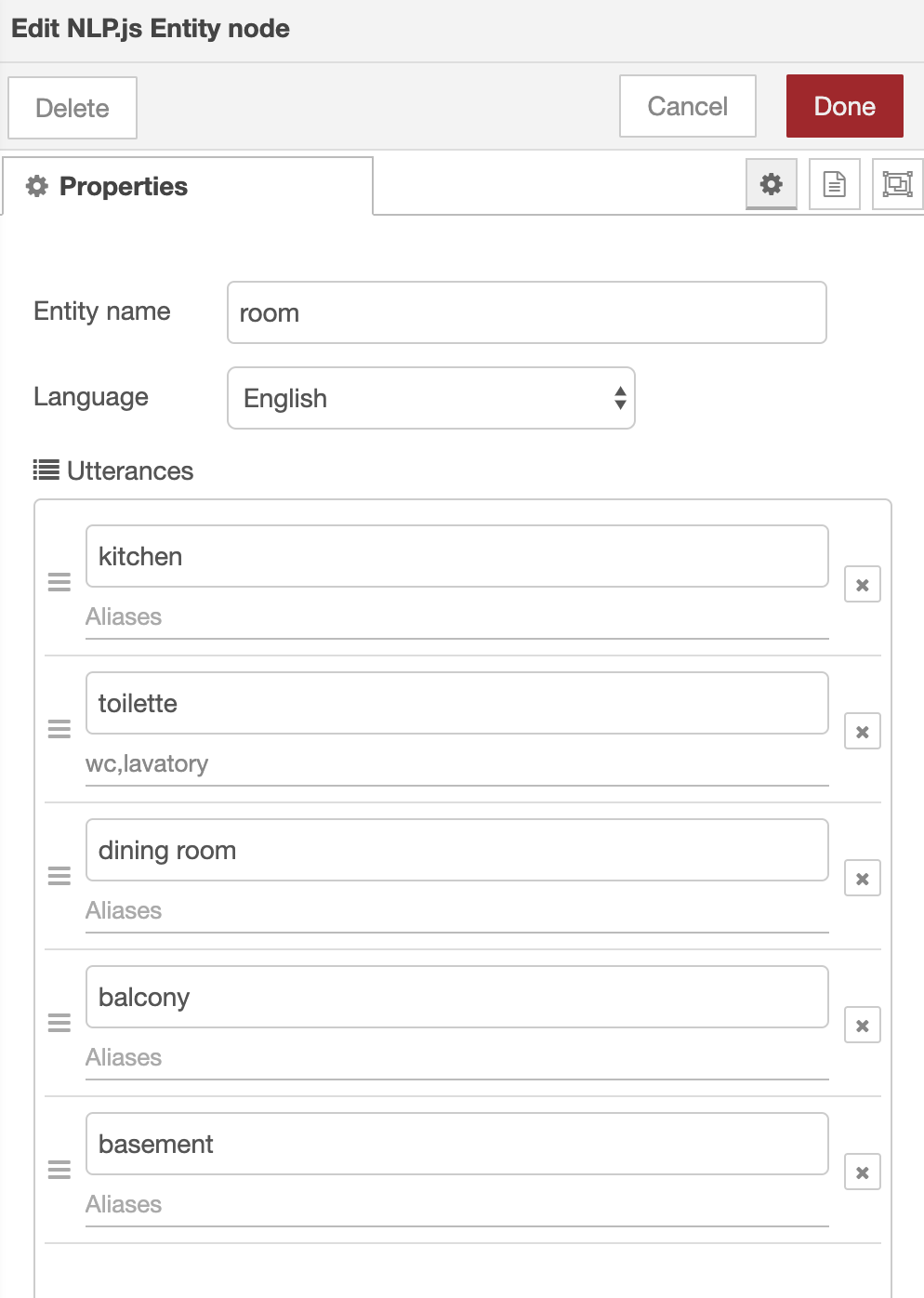
An entity is the variable part of the utterance, it can be detected and stored in a context variable and used later in the flow. Some entities are predefined (like numbers, dates, etc) while other can be defined, for example a chatbot that is able to understand a sentence like I want to buy 3 apples should have an intent with the utterance I want to by %number% %fruit%. In this example the entity number is built-it, while the entity fruit should be defined with the NLP.js Entity and should include all kind of fruits with optional aliases (apple, orange, grape, etc).

Entity
Built-in entities are: email, ip, hashtag, phonenumber, url, number, ordinal, percentage, age, currency, date, duration.
The entity can also be defined in a upstream node:
{
payload: {
name: 'fruits',
language: 'en',
entities: [
{ name: 'orange' },
{ name: 'apple', aliases: ['golden apple', 'granny smith apple'] }
]
}
}
Available parameters for the msg.payload
| Name | Type | Description |
|---|---|---|
| entities | array of [entity] | The list of entities |
| name | string | The entity name |
| language | string | The ISO code for language (en, it, …) |
The [entity] object
| Name | Type | Description |
|---|---|---|
| name | string | The entity item name (required) |
| aliases | array of string | Possible aliases of the same item |